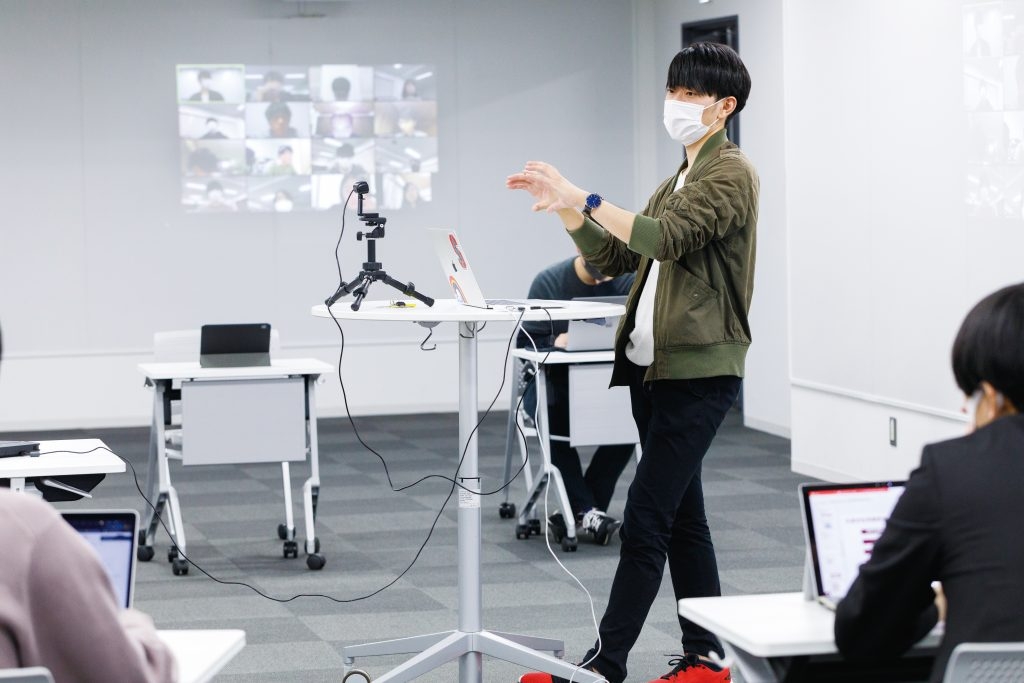With the spread of COVID-19 in 2020 affecting every aspect of society, even Tokyo University of Science (TUS) found itself forced to temporarily close campuses.
Faced with this situation, the Vice President in charge of education, Professor Yuki Watanabe, met with other teaching faculty to discuss alternatives to in-person classroom instruction. The primary focus for Professor Watanabe and the others was “ensuring learning can continue without compromising safety.”
From the proposals put forward during this meeting, it was decided that TUS would switch to a “HyFlex” class model starting in 2021. The HyFlex class model involves simultaneous provision of in-person classroom and online instruction. The name of the method was created by combining “hybrid” with “flexible” to make “HyFlex.”
Each student is allowed to choose the style of instruction-in-person or online-best suited to their situation. This diversification of class instruction means that even students currently studying overseas, or students concerned about physically attending class, are equally provided with the opportunity to learn.
Virtual reality (VR) technology is also being explored at TUS to allow students to remotely participate in the lab work and practical training so essential to science and engineering university classes.
It is important to create an environment like this which ensures access to education, not only for those affected by the pandemic, but also for those affected by disasters, injuries, illnesses or any other circumstances. To make this possible, education needs to be digitized as we embark on an era of new and unknown challenges.

TUS is filled not only with students who aim to become researchers but also those who want to become educators. It is for these students that the Watanabe Laboratory conducts educational technology and instructional design-related research.
As times change, and learning styles with them, Professor Watanabe’s hope is for students to become autonomous learners.
After all, learning has always been fundamentally an active process. It is not by being taught but by learning how to think that students are able to get more from their education and, in turn, contribute more to society as problem-solvers.
For this reason, classes mainly revolve around active learning.
For the future, Professor Watanabe believes what is needed is research into the potential of online classes and the distinctive merits of in-person instruction as we embark on a new era in university education. And, within this context, the focus shall be on cultivating outstanding educators who will help in firmly establishing the “edifice of knowledge” at TUS.
■ Main research content